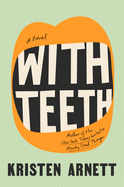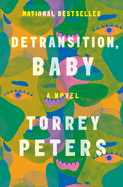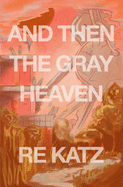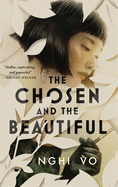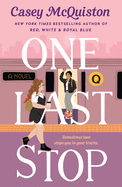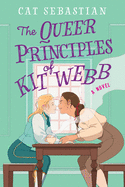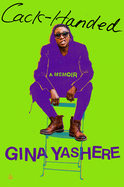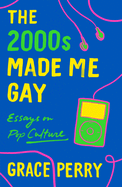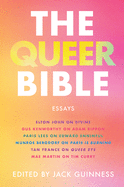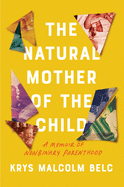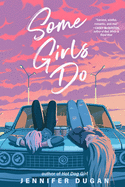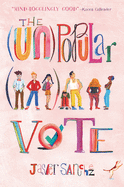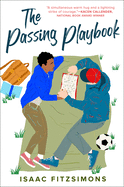 |
| photo: Mark Likosky |
Krys Malcolm Belc's writing has appeared in Granta, the Rumpus and Black Warrior Review, among others. His memoir, The Natural Mother of the Child: A Memoir of Nonbinary Parenthood (reviewed below), explores questions raised by his experience as a transmasculine gestational parent. Belc has an MFA in Creative Writing from Northern Michigan University and lives in Philadelphia with his partner and three children, where he works as an educator.
There are so many threads in The Natural Mother of the Child; how do you talk about the book?
I think of it as a memoir-in-essays and I definitely ascribe the adjective "image-text" to it, because there's a lot of image work in it that isn't necessarily all traditional photo essay. That's what it is.
What it's about, that's a different question. I think a lot about the psychologist Alexandra Sacks who talks about the birth of a mother, how when you give birth, you're giving birth to a new version of yourself. In Natural Mother of the Child, I am thinking of that, about the impact of giving birth, specifically on someone who doesn't fit into the umbrella of motherhood, whose experiences are outside of traditional experiences of motherhood and mothering. It's an engagement with ideas about motherhood and gender... and myself.
Oh, yes. And that birth of a parent is both so universal and also so unique.
It is almost like an experience of transition. It was like a pre-transition transition event for me. There's hormones, and your body changes, and people have a different view of you, and you have to think about the meaning of gender in your life. Everybody sort of goes through those things [when pregnant]. For me, it made me realize, I did this one transition, and now I feel prepared to do this other transition that I had been thinking about for my entire adult life.
There's a universality to it, and I was very interested in giving a different version of what it means to interrogate gender while you're having a baby.
I felt like much of your experience as a parent also drove home the idea that there is really no "one-size-fits-all" way of parenting.
Most of the experiences of parenting that I have are just like many other parents, especially other white middle-class parents: wondering why my kids ask for so many snacks, or why it's so hard to find shoes that won't fall apart, what our decisions about school say about me and my values. That's the majority of my engagement with parenting, and then there's other stuff that feels uniquely queer.
I think the idea that as a parent you have very different experiences parenting different children is something people are often uncomfortable engaging with. But I feel that I have a very different experience parenting my one gestational child [than my other two children], and I think that that is okay, and it's not bad, and there's nothing wrong with it. And there's a lot of ripe material in queer families about different ways that kids came into your life.
I think that I am drawn to writing about things that I haven't quite figured out, necessarily. So a lot of the engagement in Natural Mother of the Child is around this question of why I am so obsessed with this one parenting relationship that I have [with my gestational child] when I am actively and daily parenting three people.
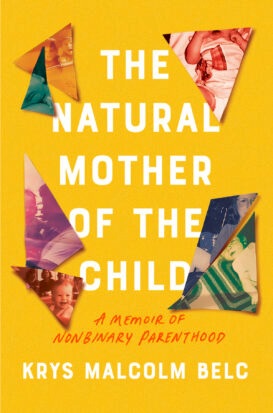 It's interesting that you write about things you're still grappling with. This doesn't feel like a collection of essays that say, "here's the answer, here's what I figured out," it's more like, "here are my questions."
It's interesting that you write about things you're still grappling with. This doesn't feel like a collection of essays that say, "here's the answer, here's what I figured out," it's more like, "here are my questions."
I worried about whether anyone would want to publish [the book] because of that. It doesn't have a narrative arc, and I'm certain that I could have made it look more normal, but I don't know that I could have ironed out the ideas into something that's like, "Here's all the information that I've consumed and all of the experiences that I've had and here's my take on them."
There's gesturing towards some ideas of having to accept that transition means that you lose some things and gain other things, or presenting the way that I present now means I lost some things and gained some things. If there's any one takeaway, it's that every twist has both positives and negatives, but that's not like, here's the answer! Here's how my experience of being a non-binary parent might help you!
It's not really about that, so it's interesting seeing my book placed in conversation with other books that are more "real" parenting books, that help people be parents, because that's not what this is. If you're trying to figure out how to accept the fact that imperfect people who don't have the answers can be parents, I'm happy to be in that canon of literature (which is mostly fiction). But as far as what it offers in terms of people looking for an answer to a question, I don't know that that's possible.
I do think there's something that a transmasculine experience brings, particularly to these eternally circling questions about family. A lot of transmasculine people who haven't done their research will wonder, "Should I transition, or should I have a baby first?" And it's not actually a decision you need to make. Maybe some people want to have a clear answer, but that's not really how it works. And I think that there is a false narrative of the availability of fertility options for people who transition. Knowing that some things can come later, and you don't have to do things in a certain order, is very liberating.
You mentioned that your book doesn't really have a narrative arc, but sits as individual pieces, some of which were previously published. How did you work to combine existing writing with new writing for this book?
They're all different formal engagements with the same ideas [around parenting and motherhood]. I kept changing the order, and then adding and subtracting pieces. I ended up with this big posterboard, and I wrote down all the themes I could think of: motherhood, embodiment, transition, legal documents, science. And I was taking all of the sections and figuring out which one went where. That gave me a lot more freedom in revising essays that had previously published, to bring up ideas that I knew would be explored later in the same text.
I found arranging it to be a very different process from writing the individual pieces, with its own really exciting artistic energy. And I do think when I first read it front to back, I feel like the last essay is very much pulling threads from other parts.
Many of the essays are written in direct address, often to your partner, Anna. How did you come to that style?
I write to her a lot. I think that I do my best writing when it is in direct address, and often things that aren't started that way end up that way. The direct address also shifts to other people throughout the book. I think it is an act of great intimacy to write to someone, but then Anna's also lumped in with all these other cis people who don't get it, in a way, or people I'm trying to explain stuff to. My relationship with her is a through-line in my life: we met when I was very young and was there for a lot of the bad parts, and has dealt with being with someone who's very indecisive and sees the good and bad in everything to the point where it takes a decade to make a decision. Part of it is I feel like I am more open and intimate when I'm writing to her. And also there is this disconnect between us because she's very cis. I think that impulse to both be close to someone but also that there is this distance is where the direct address finds its happy home. It's this dual thing of love and separation; that's why people write letters in the first place.
There's a moment when The Natural Mother of the Child shifts to the first direct address, and I feel like that's when my favorite ideas start picking up in the book. It starts in a moment when I was at Anna's parents' house for dinner, wondering why I was there. On Earth We're Briefly Gorgeous and Between the World and Me are both books where writers took direct address to express these deep ideas of love and confusion to someone. Those both do it in a way that I really understand and really spoke to me.
I think I am probably not done with this method of writing, because I get my best ideas this way. And when people ask who the book is for, who my intended audience is, my answer is Anna. --Kerry McHugh
Krys Malcolm Belc: Transitions in Nonbinary Parenting
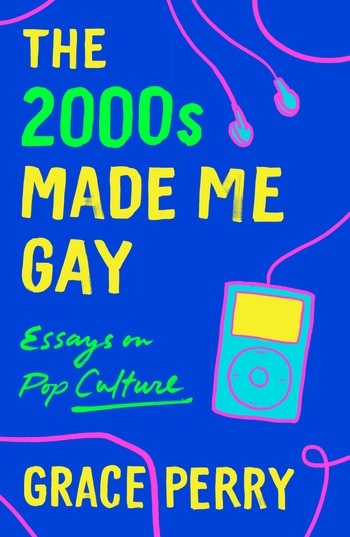 Like Grace Perry, author of The 2000s Made Me Gay (reviewed below), I too am a gay millennial endlessly interested in queer cultural touchstones. We grew up in a time when LGBTQ+ representation in media was emerging but still far from perfect. In many of her essays, she traces the significance of visible representation, such as The L Word, but in other pieces, a heteronormative film like Moulin Rouge lends her enough room to queer it.
Like Grace Perry, author of The 2000s Made Me Gay (reviewed below), I too am a gay millennial endlessly interested in queer cultural touchstones. We grew up in a time when LGBTQ+ representation in media was emerging but still far from perfect. In many of her essays, she traces the significance of visible representation, such as The L Word, but in other pieces, a heteronormative film like Moulin Rouge lends her enough room to queer it.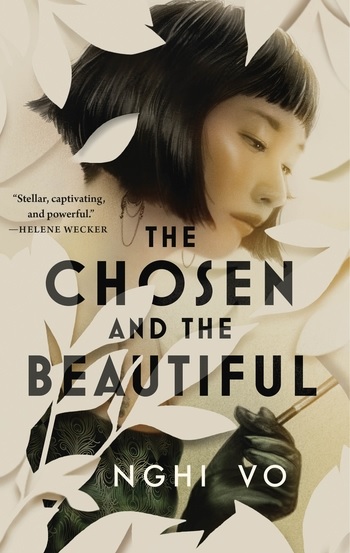 To queer something was an idea that surfaced time and again in my postmodern literature course discussions in the mid- to late 2000s. Basically, it means to seize a (straight) narrative that leaves itself just open enough to interpretation, and to insert a queer identity into that gap as a means of reevaluating the piece. And that is exactly what Nghi Vo does to The Great Gatsby in her first full-length novel, The Chosen and the Beautiful, centering a queer Vietnamese adoptee as Daisy Buchanan's childhood friend. Read our review below!
To queer something was an idea that surfaced time and again in my postmodern literature course discussions in the mid- to late 2000s. Basically, it means to seize a (straight) narrative that leaves itself just open enough to interpretation, and to insert a queer identity into that gap as a means of reevaluating the piece. And that is exactly what Nghi Vo does to The Great Gatsby in her first full-length novel, The Chosen and the Beautiful, centering a queer Vietnamese adoptee as Daisy Buchanan's childhood friend. Read our review below!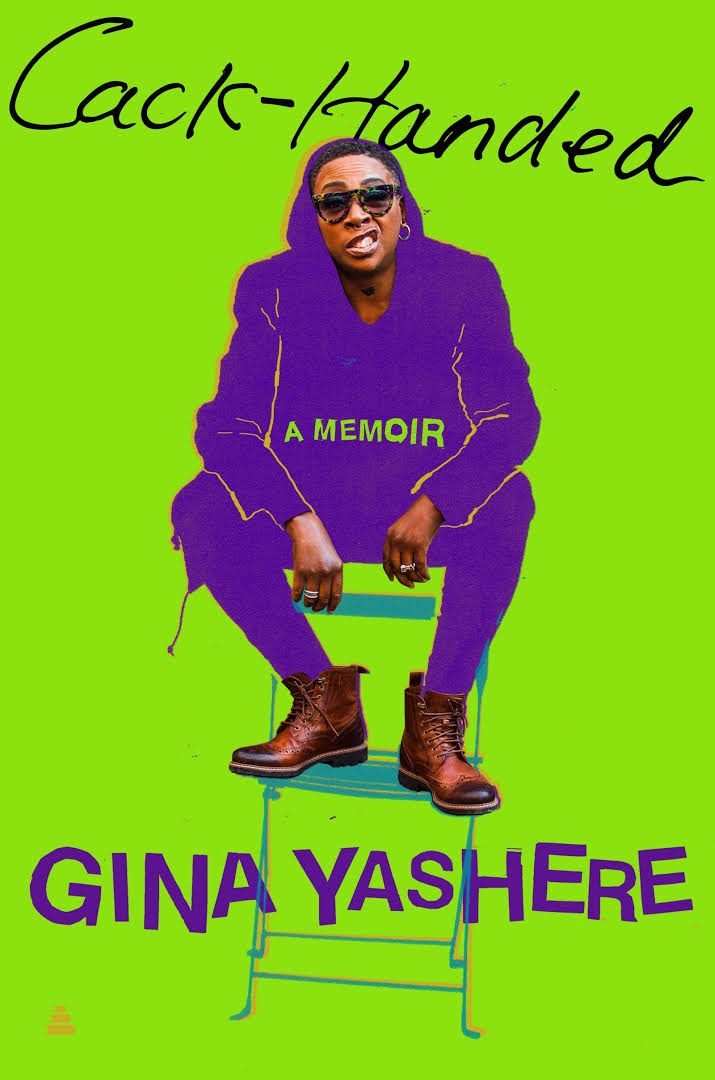 In today's newsletter, we feature books that celebrate queer pop cultural figures, like stand-up comic Gina Yashere (Cack-Handed), and a pantheon of other high-visibility icons in Jack Guinness's Queer Bible. We also have several books that queer the family unit, like Krys Malcolm Belc's "poetic and moving" memoir of transmasculine, nonbinary parenthood, The Natural Mother of the Child, and Torrey Peter's "unforgettable" novel about trans women and motherhood, Detransition, Baby.
In today's newsletter, we feature books that celebrate queer pop cultural figures, like stand-up comic Gina Yashere (Cack-Handed), and a pantheon of other high-visibility icons in Jack Guinness's Queer Bible. We also have several books that queer the family unit, like Krys Malcolm Belc's "poetic and moving" memoir of transmasculine, nonbinary parenthood, The Natural Mother of the Child, and Torrey Peter's "unforgettable" novel about trans women and motherhood, Detransition, Baby.



 It's interesting that you write about things you're still grappling with. This doesn't feel like a collection of essays that say, "here's the answer, here's what I figured out," it's more like, "here are my questions."
It's interesting that you write about things you're still grappling with. This doesn't feel like a collection of essays that say, "here's the answer, here's what I figured out," it's more like, "here are my questions."